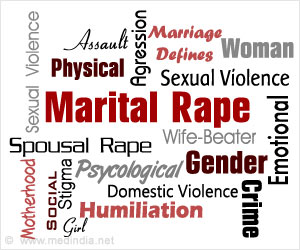Why do survivors of harassment and abuse wait to speak out?
- Emotional Burdens: Survivors of sexual harassment and abuse often struggle with shame, guilt, anxiety, and stigma
- Overlooking Trauma: Existing systems fail to acknowledge the immediate aftermath of trauma and the complex emotions survivors experience
- Empathetic Support: By prioritizing safety, support, and control for survivors, society can create a safer environment that encourages survivors to come forward
The impact of sexual abuse on female development: Lessons from a multigenerational, longitudinal research study
Go to source).
The Trauma and Psychological Barriers
Sexual harassment and abuse have a profound and lasting impact on survivors' emotional well-being. Recounting these traumatic experiences can trigger vivid memories, nightmares, panic attacks, and flashbacks, intensifying the survivor's distress.Making a formal complaint requires survivors to revisit their trauma, an act that many find overwhelming and a deterrent to their healing process. The need for justice, often assumed by others, is not always the highest priority for survivors, who prioritize safety and social support instead.
Limitations of Current Systems and Expectations
Existing systems designed to address sexual harassment often fail to acknowledge the immediate aftermath of trauma and the complex emotions survivors experience. These systems assume that survivors will promptly report their experiences, overlooking the challenges survivors face in recognizing their assault, processing shame and guilt, and navigating the potential consequences of disclosure.Additionally, the lack of support systems, resources, and awareness of available legal options further discourages survivors from coming forward and seeking justice.
Rethinking Expectations and Creating Empathetic Support
It is crucial to acknowledge the unique needs and challenges faced by survivors of sexual harassment and abuse. Expecting survivors to immediately report their experiences disregards the complexities of their trauma and the lack of adequate support systems.Restorative justice approaches, which prioritize safety, support, and control for survivors, offer a more holistic and empowering alternative to formal legal systems. By understanding survivors' needs and providing empathetic and non-judgmental support, society can create a safer environment that encourages survivors to come forward when they are ready, rather than forcing them into premature or retraumatizing actions.
Reference:
- The impact of sexual abuse on female development: Lessons from a multigenerational, longitudinal research study - (https://www.ncbi.nlm.nih.gov/pmc/articles/PMC3693773/)
Source-Medindia











